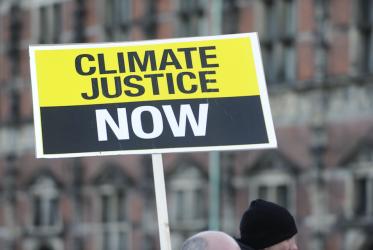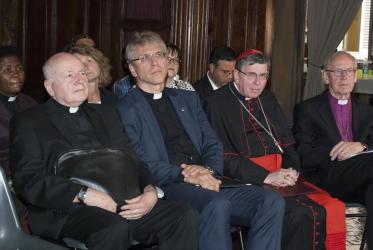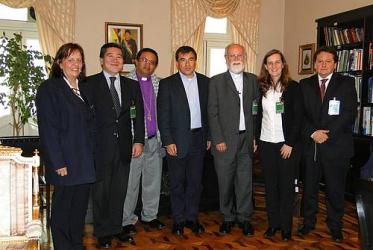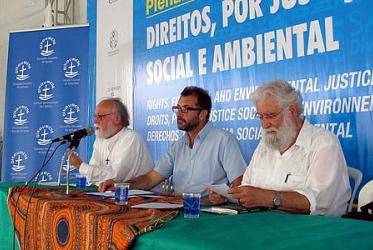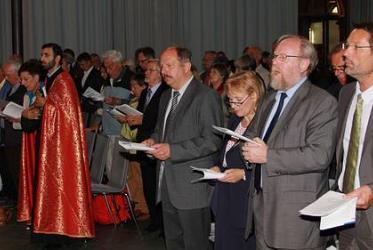Displaying 41 - 60 of 64
WCC participates in UN panel discussion on climate ethics
15 February 2017
New videos help congregations hasten HIV response
20 October 2016
WCC conference explores ecological injustice in Uganda
21 April 2016
COP21: WCC reaffirms commitment to address climate change
15 November 2015
Statement on global economy delivered to Bolivia
15 January 2013
WCC supports Ecuador’s Yasuni project
13 October 2011
Time for Creation 2011: A call to pray, reflect and act
14 September 2011
WCC Executive Committee in Ethiopia exposed to famine situation
13 September 2011


